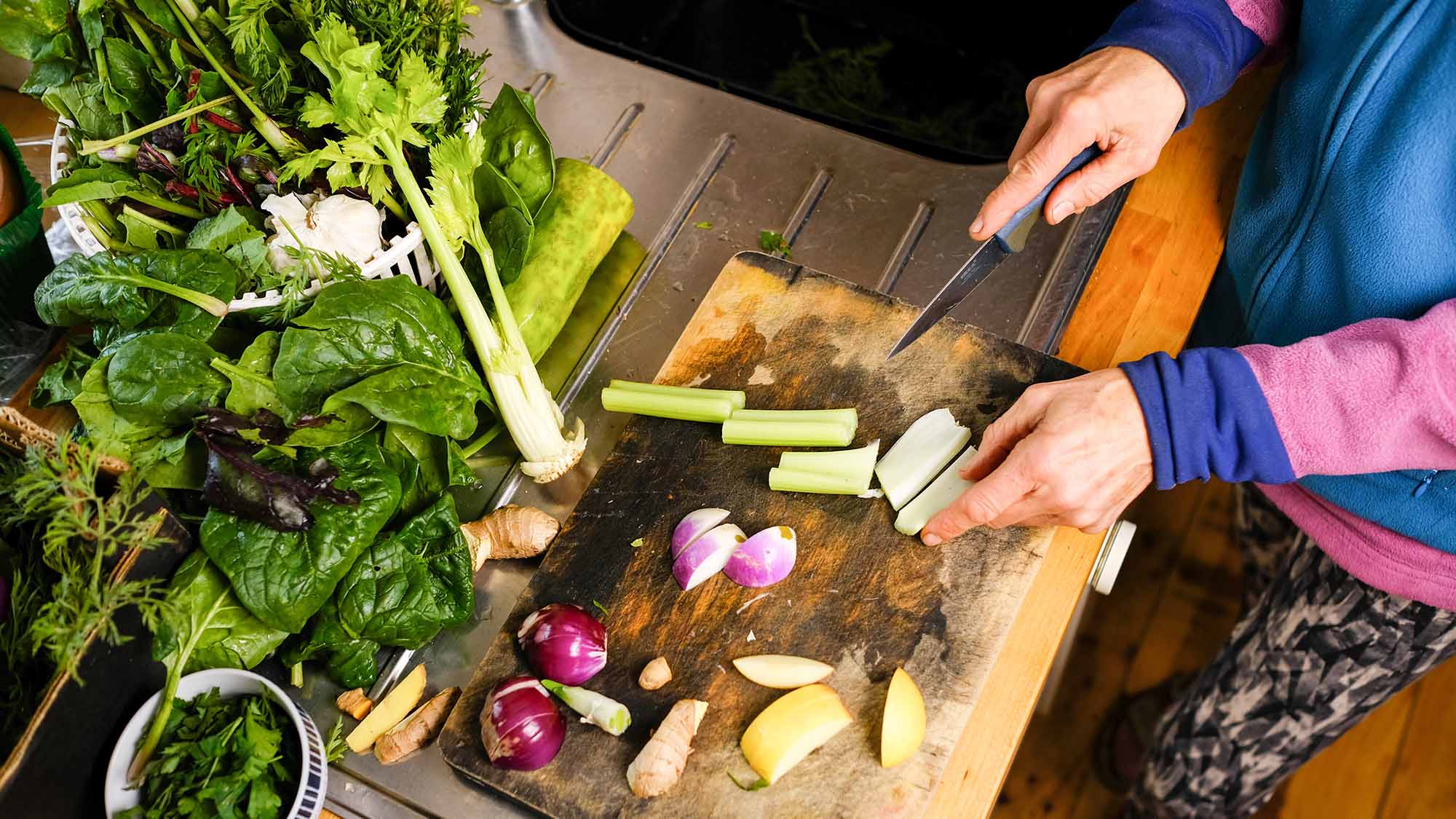Eating well to help prevent falls
Eating mostly healthy foods that are rich in vitamins is essential as you get older. Eating well can help you maintain your strength, balance, and bone density, reducing the chance of having a fall and breaking a bone. It will also support your immune system and prevent infections.
Poor nutrition can lead to weight loss, muscle weakness, fatigue, and increased risk of falls and fractures.
Here’s our quick guide to better nutrition for older adults.
Tips for healthy eating
- Have at least three meals a day.
- Try to eat at regular times and have healthy snacks in between meals if you get hungry.
- Include a good range of foods in your diet.
- Maintain a healthy weight. If you’re worried about your weight or appetite, speak to your doctor.
Essential nutrients and where to find them
- Calcium rich foods for bone health – milk, yoghurt, cheese, or creamy soups.
- Protein rich foods – red meat, fish, nuts, seeds, and wholegrain cereals.
- Vitamin D – ask your doctor about supplements or get 30 minutes of low-level sunlight every day.
- Eat five plus portions of fresh fruit and veggies. Frozen veggies are just as good as fresh and can be more convenient.
Tips for staying hydrated
- Staying hydrated is essential to keep you active and healthy.
- Drink plenty of fluids, especially water and on warm days.
- Keep a glass of water within reach during the day – as a reminder to drink enough water.
- Check your urine colour – a deeper yellow may be a sign you’re dehydrated.
Limit your alcohol intake
Many people need to drink less alcohol as they get older, while some need to stop drinking altogether. Older adults are more sensitive to the side-effects of alcohol:
- Drinking alcohol can make the effects of some medicines stronger or weaker or make their side-effects worse.
- Drinking too much can cause health problems, or make existing health problems worse, for example diabetes and mental health problems.
More information on eating well
For more information on eating healthily and reducing your alcohol intake, visit the following websites:
Eating for healthy older people
Nutrition for older adults

